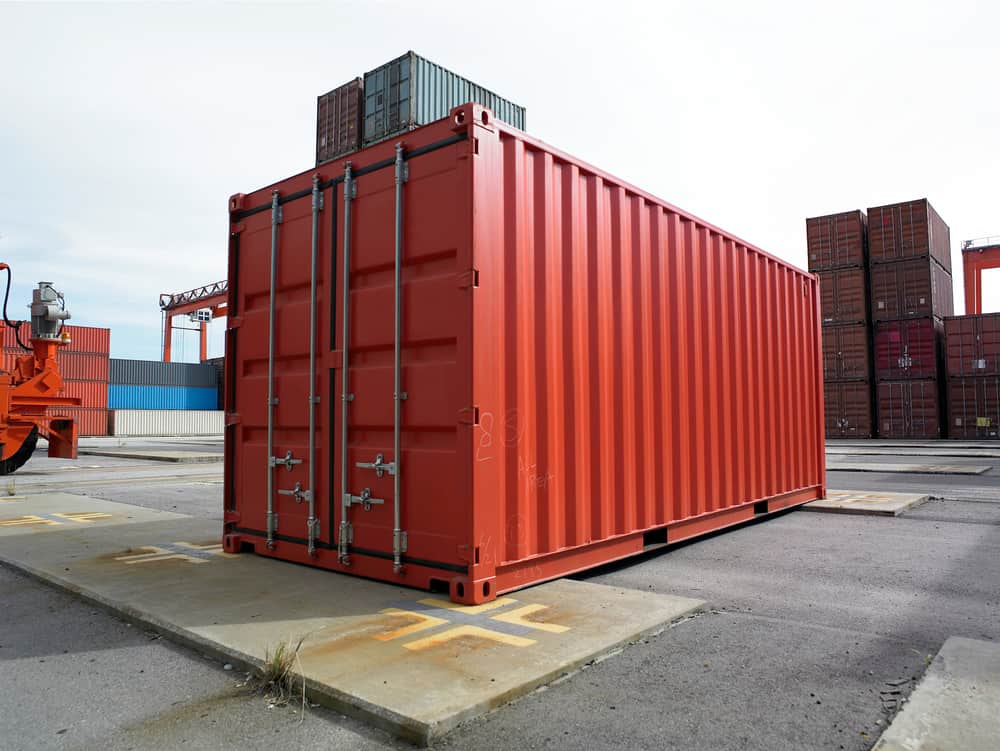
The decision to invest in shipper-owned containers is a critical consideration for businesses engaged in regular shipping activities. “Is it worth buying your own container?” prompts a thorough exploration of the benefits and drawbacks associated with container ownership. This inquiry delves into financial implications, logistical advantages, and the potential for long-term cost savings.
In this exploration, we will assess the factors that contribute to the decision-making process, helping businesses determine whether owning containers aligns with their shipping needs and overall operational strategy.
What is a shipper-owned container?

A shipper-owned container (SOC) refers to a shipping container that is owned by the entity or company that is shipping the goods, rather than being owned or leased from a shipping line or container leasing company. In the context of international shipping, containers are typically owned by shipping lines or leasing companies, and shippers lease them for transporting their goods.
What are the benefits of shipper owned containers?
Shipper-owned containers (SOCs) offer several advantages for businesses engaged in regular shipping activities. Here are key benefits:
Cost Control and Long-Term Savings:
- Ownership provides greater control over costs. While there is an initial investment, owning containers can lead to long-term savings compared to continuous leasing expenses. This is particularly advantageous for businesses with consistent and predictable shipping needs.
Flexibility and Convenience:
- SOCs offer flexibility in terms of scheduling and usage. Shippers can use containers as needed without being bound by the terms and conditions of leasing agreements. This flexibility is especially valuable during peak shipping seasons or when dealing with unexpected changes in shipping plans.
Customization for Specific Cargo:
- Shippers can customize owned containers to meet specific cargo requirements. This is crucial for businesses transporting unique or specialized goods that may require specific container features or modifications.
Immediate Availability:
- Owning containers ensures immediate availability when needed. Shippers don’t have to wait for leased containers to become available, reducing potential delays in shipping operations. This is particularly beneficial in industries with time-sensitive shipping requirements.
Reduced Administrative Hassles:
- Ownership simplifies administrative processes associated with container leasing. Shippers can bypass negotiations, paperwork, and tracking of leased containers, streamlining logistics and reducing administrative complexities.
While these benefits make shipper-owned containers an attractive option for certain businesses, it’s important to carefully evaluate individual needs, shipping frequency, and long-term strategies before deciding to invest in container ownership.
Is it worth buying your own container?

The decision to buy your own container (Shipper-Owned Container or SOC) depends on various factors, and it’s not a one-size-fits-all situation. Here are some considerations to help you evaluate whether it’s worth buying your own container:
Frequency of Shipping:
- If you have regular and frequent shipping needs, owning your containers might be more cost-effective in the long run compared to leasing.
Cost Considerations:
- Buying containers can involve higher upfront costs, but it may be financially beneficial over time if you have a consistent and ongoing need for shipping.
Control and Flexibility:
- Ownership provides greater control over the use of containers, scheduling flexibility, and customization to meet specific cargo requirements.
Maintenance and Repairs:
- Consider the responsibility for container maintenance and repairs. If you own the container, you are responsible for its upkeep, and associated costs should be factored into your decision.
Container Size and Type:
- If your cargo requires specific container sizes or types that are not readily available for lease, owning your containers allows you to meet those specific needs.
- Buying containers makes more sense for businesses with a long-term commitment to shipping. If your shipping needs are sporadic or short-term, leasing might be more practical.
In summary, buying your own container can be a worthwhile investment for some businesses, particularly those with consistent and long-term shipping needs. However, it’s essential to carefully assess your specific situation, including financial considerations, maintenance responsibilities, and the nature of your shipping requirements, before deciding whether ownership is the right choice for you.
What’s the difference between SOCs and COCs?

SOC (Shipper-Owned Container) and COC (Carrier-Owned Container) are terms use in the context of shipping containers to describe ownership. Here’s a brief distinction between the two:
Shipper-Owned Container (SOC):
- Ownership: SOC refers to a container that is own by the shipper or the entity responsible for shipping the goods.
- Responsibility: The shipper is responsible for the container, including maintenance, repair, and ensuring compliance with international shipping standards.
- Advantages: Shippers may choose SOCs for greater control over container use, scheduling flexibility, and potentially lower long-term costs compared to leasing.
Carrier-Owned Container (COC):
- Ownership: COC refers to a container that is own by the shipping line or carrier providing the transportation service.
- Responsibility: The carrier is responsible for the maintenance, repair, and compliance of the container with international standards.
- Advantages: Carriers often have large fleets of containers, providing shippers with the convenience of readily available containers without the responsibilities associated with ownership.
In summary, the key difference lies in ownership and the party responsible for the container’s management and maintenance. With SOC, the shipper owns and manages the container, while with COC, the carrier owns and takes care of the container. The choice between SOC and COC depends on factors such as the shipper’s specific needs, shipping frequency, and long-term considerations.